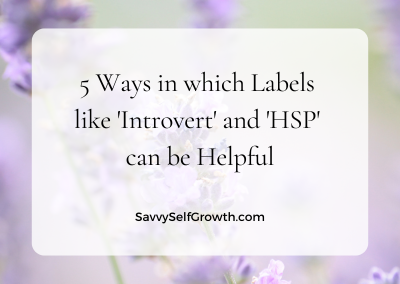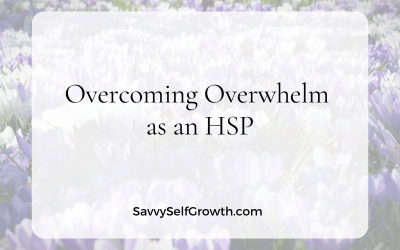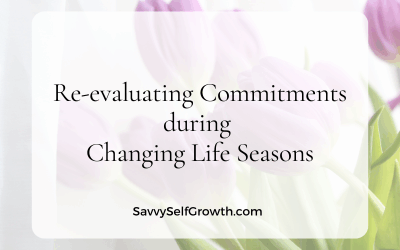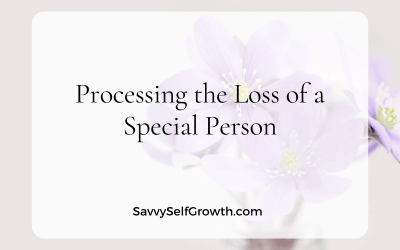There have been many discussions about whether labels like Introversion, HSP, Empath and others are helpful or not. This article describes my perspective.
I’ve seen this type of interaction so often. Perhaps you’ve seen similar, or been on either side of this type of exchange:
A: “I’m an introvert.”
B: “Don’t say that, you’re limiting yourself.”
A: “Well, it’s true. I am. I am self-aware and I have certain needs because I’m an introvert. ”
B: “Yes but now you’re defining yourself as that. I don’t like labels. It’s limiting.”
Who is right?
In today’s article, I pull this apart a little bit and look at many of the elements involved.
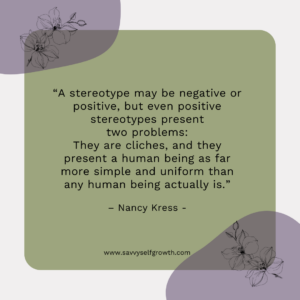
Definition of Label
Let’s first look what the term ‘label’ means. 2 things come up from the dictionary:
1. a small piece of paper, fabric, plastic, or similar material attached to an object and giving information about it.
2. a classifying phrase or name applied to a person or thing, especially one that is inaccurate or restrictive.
By nature, a label must include some things, and exclude others, else it won’t be useful.
What labels do
Almost everything we talk about can be called a label. A door is a label for an object that looks and behaves in certain ways. It excludes it being a window, a table, a chair. Grass is a label for a type of plant that grows in certain places and behaves in certain ways. It excludes it being a flower, a tree, a shrub. ‘Woman’ is a label for a certain set of characteristics. Saying ‘Post-menopausal woman’ qualifies the label even more.
A medical diagnosis is also a label!
Fibromyalgia, MS, chronic backpain, tendonitis, Parkinson’s Disease. All labels for sets of symptoms that not every person with those conditions experience.
The labels (words) are not good or bad in themselves. They provide us with helpful information, but also doesn’t mention every other thing about the person or object.
My intention in this article and the next, is to include both sides. A label can give us more information about something, which can be very helpful. And it can also classify someone or something in an inaccurate or restrictive way.
5 Ways in which labels can be helpful
Let’s look at the helpful parts of labels first.
I cook in bulk very often to make dinners easy for the rest of the week. When I’m not sure what is in a container in my freezer, it’s helpful to read the label I stuck on the lid: the name of the dish, the date, and the weight. It certainly does not list every single ingredient I added. Yet it does give me a super helpful indication of what taste I could expect, whether it’ll be enough for a full meal, and whether it’s still fresh.
Let’s now look at 5 reasons why labels like ‘introvert’ or ‘HSP’ can be helpful.
One: Self-understanding and acceptance
I have felt this benefit myself. Most of my life I’ve felt different and I couldn’t put my finger on it. Parents, teachers, and school friends expected me to be more outgoing, louder, more talkative than I was. That lead to self-doubt, feeling like something was wrong with me — yet unable to change myself. I really DIDN’T want to be more outgoing or spend more time in the company of others. I loved my quiet reading and thinking time — and it seemed like the people around me made it wrong.
So when I finally learned about the term ‘introvert’ and realised that most of my clients were introverts too, I was absolutely delighted! Gosh! I’m not so weird after all!
It helped me accept myself and my weird need for silence and solitude. There were others like me, and I understood myself and my behaviour a whole lot better. And the same happened when I learned about Highly Sensitive Persons. Oh my, the relief that I wasn’t a snowflake for not being able to stand noise, bright lights, loud music, too much going on, and felt drained so easily. It provided awareness for what I need to limit, avoid or be aware of for future interactions. I felt understood and validated.
Two: Community and support
Human beings need a supportive environment to thrive. It is hard to grow and develop when we feel like the odd one out, unacceptable. Discovering groups where introverts and HSPs gathered and felt at ease with each other was liberating.
In those groups, I didn’t have to try to be anything but myself. I could be silent, and no-one would bat an eye. I created a FB group for introverts, and people loved sharing their experiences.
In my first Strengths course, my amazing trainer Dries Lombaard was (still is!) an introvert. Every one of the 5 students were an introvert. So, when Dries asked a question and he was met with silence, his response was: “You all have the talent of intellection. You’re not talking but I KNOW a lot is going on for you in your head. When you’re ready, please share.”
That gave all of us permission to be ourselves, think through the layers, not forced to speak when we were still mulling over. It fostered a sense of support, community, understanding. Not being judged for our strength of silent thinking was something I’ll never forget. Thank you Dries!
Three: Effective communication
Reading a label on my freezer food, even if it’s just 2 words like ‘chicken curry’ gives me instant information in a very effective way. I now know what’s in it — chicken, spices, tomato, veggies, water, salt, stock. I can recall which pot I made it in, what mood I was in, I can almost taste it by just reading the words, and perhaps even recall memories of other times I ate chicken curry. All that, by reading 2 words.
That’s what a label like ‘I’m in introvert’ can do for us, too. It quickly provides the other person with some information that they would otherwise have had to discover in more laborious ways. It can help the other person(s) to understand why I’m not going to stay till the very end, or why I’m slower in my responses and need more time to prepare to speak, or why I enjoy eating my lunch by myself.
It’s a type of shorthand, that can foster understanding. And of course, the other person’s response will depend on how they understand and accept the ‘label’ of introversion. More about that later.
Four: Guidance for Personal Growth
When we understand our own tendencies, qualities and needs as introverts or HSPs, it can provide valuable insight into areas for personal growth and development.
The understanding that seeking out silence at the end of a long day was not a deficit or mistake but a true need to recharge, it permitted me to create my days in ways that would support my energy. When I understood that I needed quiet time to think things through, I could say no to certain situations that would negate my needs. For instance: an open-plan office.
Knowing my needs, and being able to fulfil them, makes me a happier, more fulfilled person and increases my wellbeing. I had to learn to be aware of my needs and then speak up about them, instead of feeling resentful that no-one understood me. Plenty of opportunities for personal growth, right there.
Five: Validation for help and support
When we’re aware of our tendencies, qualities, strengths, and weaknesses due to a label like introvert, it makes it easier for us to seek out help around certain areas.
If we know as an HSP we easily get sensory overwhelm, it’s sensible to find a book, course or someone that can teach us strategies to manage that.
If we know as an introvert, we cannot manage the number or frequency of social engagements expected of us, it would make absolute sense to seek out support to learn how to deal with that, set boundaries, and speak up for our needs.
Yes, labels can be incredibly helpful!
And for a balanced view, in the next article, I’m going to look at how labels could also hinder us.
If you enjoyed this article, you might also enjoy:
Overwhelm and Highly Sensitive People (HSP’s) — | Savvy Self Growth for HSPs
Why I Work with Sensitive Introverts and why it Matters — | Savvy Self Growth for HSPs
What Embracing Slow Moments can do for HSPs — | Savvy Self Growth for HSPs

